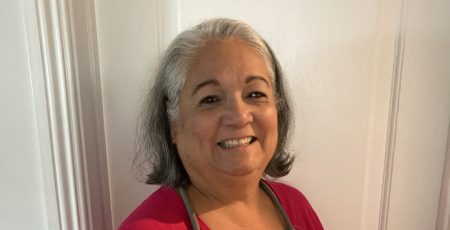
28 Jan If You’re Offered a COVID-19 Vaccine, Should You Take It?
by Harry Rossiter, PhD
As you are all no doubt aware the FDA has given emergency use authorization (EUA) for two vaccines against SARS-CoV-2, the virus that causes COVID-19 disease. These are new-technology mRNA vaccines, developed by Pfizer/BioNTech and Moderna. At least 4 other vaccines are on the way in the US.
A total of 74,000 people participated in the clinical trials that lead to FDA EUA approval and, in these trials, 32,000 people received the active vaccine. The graph below, from the scientific journal Cell, shows that over 3 months, about 640 people given a placebo went on to catch COVID-19. The vaccines were about 95% effective in preventing this. What these graphs don’t show is that only 1 person out of roughly 32,000 vaccinated developed a disease severe enough to require hospitalization. There is a stunning message here, which is: these vaccines are essentially 100% effective in preventing a severe case of COVID-19. They transform a potentially-deadly disease into something far less virulent. This astonishing achievement, developed and delivered in less than 12 months, is humanity’s exit route from the global devastation caused by the pandemic. The light at the end of the tunnel is looming large.

If you are offered a vaccine, should you take it?
Of course, in healthcare, we are each an individual, and everyone should consider their own health and circumstances. Anyone thinking about taking a new medication should always take expert advice about the potential risks and benefits. The CDC provides guidance on clinical considerations of the Pfizer/BioNTech and Moderna vaccines.
Currently, medical boards in Norway and Germany are investigating a total of 33 deaths that occurred in frail elderly shortly after vaccination. Steinar Madsen, medical director of the Norwegian Medicines Agency (NOMA), told the British Medical Journal: “It may be a coincidence, but we aren’t sure. There is no certain connection between these deaths and the vaccine.” Common adverse reactions of mRNA vaccines include fever, nausea, and diarrhea, which may have been enough to contribute to fatalities in some frail people. But more than 20,000 doses of the vaccine have been delivered to care home patients in recent weeks in Norway and 400 deaths normally occur among care home residents every week. So, it is difficult to draw a direct connection to the vaccine at this point. But, be assured, that the potential effects of COVID-19 represent a far greater risk than the potential side effects of the vaccine.
Other than the obvious medical risks, there are ethical considerations related to accepting a vaccine if offered. Much of this blog is based on an excellent article by Melinda Wenner Moyer, a science and health writer for the New York Times, who considered the moral quandary of getting vaccinated.
Last week, I learned that I was eligible for the COVID-19 vaccination. I am (relatively) young and healthy and I don’t work directly in the front line, although I do conduct research on COVID-19 patients. I was concerned that by receiving the vaccine that I might be denying it to someone older or with a health condition who was at greater risk than me of developing severe disease. There is no question that access to the vaccine has been inequitable across parts of the country and the globe. But, as Melinda Wenner Moyer points out, many medical ethicists agree: If you are eligible for a vaccination, you should get it, no matter how worthy — or unworthy — you feel.
There are several reasons to get a vaccine if it is offered:
- There’s no reason to believe that if you forgo your dose, it will go to someone with a higher risk. These mRNA vaccines are hard to store and distribute, so if you turn down your dose it will go to the next person in line. They may be just like you. Worse still, the dose could get thrown away because of the short expiration dates of these vaccines. There are no simple logistics that can rapidly re-distribute the vaccine to another location that has a greater need. This is the reason why, after a freezer broke in a Northern California hospital, administrators violated state guidelines and offered the shots to everyone they could, regardless of eligibility.
- If you turn down a vaccination, based on your belief that you’re not particularly high risk, you might be wrong. It is difficult to accurately identify your own risk. Families and hospital teams are being devastated daily by the news that yet another young, previously-healthy, patient died from COVID-19; who’s to say that you might not be one of them? After all, COVID-19 is not yet fully understood, science is evolving rapidly, and the emergence of new variants of the virus further muddy the waters of who is a greater risk.
- When you get a vaccination, you’re not the only person who benefits. The basis of herd immunity is if enough people develop resistance to the virus, that the chances fall of interacting with an infected individual. For example, if an asymptotic person infected with SARS-CoV-2 goes about their day, but meets mainly those who are immune, then the virus will not be able to take hold in the community and will be prevented from spreading. It is not clear yet how much vaccination helps to prevent transmission, but early data suggests that transmission is reduced in vaccinated people. So, when you get vaccinated, you’re not only protecting your own health; you’re also protecting the health of your community. In addition, if you are inoculated, and friends or family members fall ill with COVID-19, you’ll be better able to care for them.
As Americans, we are all angry about chaotic vaccine allocation and the early failures of the system. This is understandable. But don’t confuse frustration about the problems of the vaccine rollout with choices you should make within this flawed system. Even if you feel it’s not right that you have been offered a vaccine, that doesn’t mean you should not accept it. Opting out of a broken system will not fix it. In fact, in the case of COVID-19, opting out may make the situation worse.
If you’re wondering how to get the COVID-19 vaccine, check the website of your primary care clinic for information. At the time of writing, if you live in LA County and you are over 65, you can sign up here to get a vaccination appointment through the County of Los Angeles Public Health Department. Don’t postpone, get your name on the list now!





No Comments